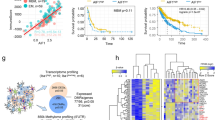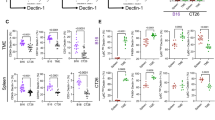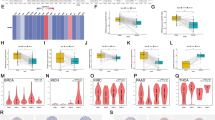Abstract
Immunotherapy with checkpoint inhibitors revolutionized melanoma treatment in both the adjuvant and metastatic setting, yet not all metastatic patients respond, and metastatic disease still often recurs among immunotherapy-treated patients with locally advanced disease. TNFSF4 is a co-stimulatory checkpoint protein expressed by several types of immune and non-immune cells, and was shown in the past to enhance the anti-neoplastic activity of T cells. Here, we assessed its expression in melanoma and its association with outcome in locally advanced and metastatic disease. We used publicly available data from The Cancer Genome Atlas (TCGA) and the Cancer Cell Line Encyclopedia (CCLE), and RNA sequencing data from anti-PD1-treated patients at Sheba medical center. TNFSF4 mRNA is expressed in melanoma cell lines and melanoma samples, including those with low lymphocytic infiltrates, and is not associated with the ulceration status of the primary tumor. Low expression of TNFSF4 mRNA is associated with worse prognosis in all melanoma patients and in the cohorts of stage III and stage IIIc–IV patients. Low expression of TNFSF4 mRNAs is also associated with worse prognosis in the subgroup of patients with low lymphocytic infiltrates, suggesting that tumoral TNFSF4 is associated with outcome. TNFSF4 expression was not correlated with the expression of other known checkpoint mRNAs. Last, metastatic patients with TNFSF4 mRNA expression within the lowest quartile have significantly worse outcome on anti-PD1 treatment, and a significantly lower response rate to these agents. Our current work points to TNFSF4 expression in melanoma as a potential determinant of prognosis, and warrants further translational and clinical research.




Similar content being viewed by others
Abbreviations
- CAF:
-
Cancer-associated fibroblasts
- CCLE:
-
Cancer Cell Line Encyclopedia
- LS:
-
Lymphocyte score
- OS:
-
Overall survival
- PFS:
-
Progression-free survival
- RPKM:
-
Reads per kilo-base per million
- TCGA:
-
The Cancer Genome Atlas
- TIL:
-
Tumor infiltrating lymphocytes
- TPM:
-
Transcripts per million
References
Schadendorf D, Hodi FS, Robert C, Weber JS, Margolin K, Hamid O et al (2015) Pooled analysis of long-term survival data from phase II and phase III trials of ipilimumab in unresectable or metastatic melanoma. J Clin Oncol 33:1889–1894
Schachter J, Ribas A, Long GV, Arance A, Grob JJ, Mortier L et al (2017) Pembrolizumab versus ipilimumab for advanced melanoma: final overall survival results of a multicentre, randomised, open-label phase 3 study (KEYNOTE-006). Lancet 390:1853–1862
Wolchok JD, Chiarion-Sileni V, Gonzalez R, Rutkowski P, Grob J-J, Cowey CL et al (2017) Overall survival with combined nivolumab and ipilimumab in advanced melanoma. N Engl J Med 377:1345–1356
Eggermont AMM, Chiarion-Sileni V, Grob J-J, Dummer R, Wolchok JD, Schmidt H et al (2016) Prolonged survival in stage III melanoma with ipilimumab adjuvant therapy. N Engl J Med 375:1845–1855
Eggermont AMM, Blank CU, Mandala M, Long GV, Atkinson V, Dalle S et al (2018) Adjuvant pembrolizumab versus placebo in resected stage III melanoma. N Engl J Med 378:1789–1801
Weber J, Mandala M, Del Vecchio M, Gogas HJ, Arance AM, Cowey CL et al (2017) Adjuvant nivolumab versus ipilimumab in resected stage III or IV melanoma. N Engl J Med 377:1824–1835
Sharma P, Hu-Lieskovan S, Wargo JA, Ribas A (2017) Primary, adaptive, and acquired resistance to cancer immunotherapy. Cell 168:707–723
Xu-Monette ZY, Zhang M, Li J, Young KH (2017) PD-1/PD-L1 blockade: have we found the key to unleash the antitumor immune response? Front Immunol 8:1597
Dannull J, Nair S, Su Z, Boczkowski D, DeBeck C, Yang B et al (2005) Enhancing the immunostimulatory function of dendritic cells by transfection with mRNA encoding OX40 ligand. Blood 105:3206–3213
Burgess JK, Blake AE, Boustany S, Johnson PRA, Armour CL, Black JL et al (2005) CD40 and OX40 ligand are increased on stimulated asthmatic airway smooth muscle. J Allergy Clin Immunol 115:302–308
Tirosh I, Izar B, Prakadan SM, Wadsworth MH, Treacy D, Trombetta JJ et al (2016) Dissecting the multicellular ecosystem of metastatic melanoma by single-cell RNA-seq. Science 352:189–196
Barretina J, Caponigro G, Stransky N, Venkatesan K, Margolin AA, Kim S et al (2012) The cancer cell line encyclopedia enables predictive modelling of anticancer drug sensitivity. Nature 483:603–607
Bodmer JL, Schneider P, Tschopp J (2002) The molecular architecture of the TNF superfamily. Trends Biochem Sci 27:19–26
Compaan DM, Hymowitz SG (2006) The crystal structure of the costimulatory OX40-OX40L complex. Structure 14:1321–1330
Kondo K, Okuma K, Tanaka R, Zhang LF, Kodama A, Takahashi Y et al (2007) Requirements for the functional expression of OX40 ligand on human activated CD4+ and CD8+ T cells. Hum Immunol 68:563–571
Jacquemin C, Schmitt N, Contin-Bordes C, Liu Y, Narayanan P, Seneschal J et al (2015) OX40 ligand contributes to human lupus pathogenesis by promoting T follicular helper response. Immunity 42:1159–1170
Buchan SL, Rogel A, Al-Shamkhani A (2018) The immunobiology of CD27 and OX40 and their potential as targets for cancer immunotherapy. Blood 131:39–48
Andarini S, Kikuchi T, Nukiwa M, Pradono P, Suzuki T, Ohkouchi S et al (2004) Adenovirus vector-mediated in vivo gene transfer of OX40 ligand to tumor cells enhances antitumor immunity of tumor-bearing hosts. Cancer Res 64:3281–3287
Shin C-A, Cho H-W, Shin A-R, Sohn H-J, Cho H-I, Kim T-G (2016) Co-expression of CD40L with CD70 or OX40L increases B-cell viability and antitumor efficacy. Oncotarget 7:46173–46186
Chen S, Fan J, Zhang M, Qin L, Dominguez D, Long A et al (2019) CD73 expression on effector T cells sustained by TGF-β facilitates tumor resistance to anti-4-1BB/CD137 therapy. Nat Commun 10:150
Garrison K, Hahn T, Lee WC, Ling LE, Weinberg AD, Akporiaye ET (2012) The small molecule TGF-β signaling inhibitor SM16 synergizes with agonistic OX40 antibody to suppress established mammary tumors and reduce spontaneous metastasis. Cancer Immunol Immunother 61:511–521
Parra ER, Villalobos P, Zhang J, Behrens C, Mino B, Swisher S et al (2018) Immunohistochemical and image analysis-based study shows that several immune checkpoints are Co-expressed in non-small cell lung carcinoma tumors. J Thorac Oncol 13:779–791
Fromm G, de Silva S, Giffin L, Xu X, Rose J, Schreiber TH (2016) Gp96-Ig/costimulator (OX40L, ICOSL, or 4-1BBL) combination vaccine improves T-cell priming and enhances immunity, memory, and tumor elimination. Cancer Immunol Res (Internet) 4:766–778
Funding
This work was partly funded by a grant from the Sister-Institution-Network-Fund (SINF) of the M.D. Anderson Cancer Center (MDACC) and the Sheba medical center, and by a research grant from the Israeli Scientific Foundation (ISF) # 16/1419. G.M. is supported by the Lemelbaum family fund and the Samueli Foundation Grant for integrative immuno-oncology.
Author information
Authors and Affiliations
Contributions
JR, EM, GM, and RL-A: conceived and designed the analysis; ENB, GB–B, JS and RS-F: collected the data; JR, EM, PD, AL, KS-K, EG, RB, YS, DA, GM and RL-A: performed the analysis; JR and RL-A: wrote the paper. All authors read, commented and approved the paper.
Corresponding authors
Ethics declarations
Conflict of interest
The authors declare that they have no relevant conflicts of interest.
Ethical approval and ethical standards
We analyzed the publicly available TCGA and CCLE databases. Use of these data does not mandate patient informed consent. The retrospective data analysis of patient samples was approved by the institutional review board of the Sheba medical center, Tel Hashomer, Israel (Approval # SMC-2411/15).
Informed consent
All patients signed an informed consent allowing the analysis and publication of anonymized data.
Additional information
Publisher's Note
Springer Nature remains neutral with regard to jurisdictional claims in published maps and institutional affiliations.
Electronic supplementary material
Below is the link to the electronic supplementary material.
Rights and permissions
About this article
Cite this article
Roszik, J., Markovits, E., Dobosz, P. et al. TNFSF4 (OX40L) expression and survival in locally advanced and metastatic melanoma. Cancer Immunol Immunother 68, 1493–1500 (2019). https://doi.org/10.1007/s00262-019-02382-0
Received:
Accepted:
Published:
Issue Date:
DOI: https://doi.org/10.1007/s00262-019-02382-0




